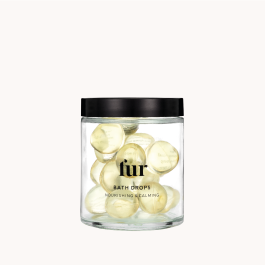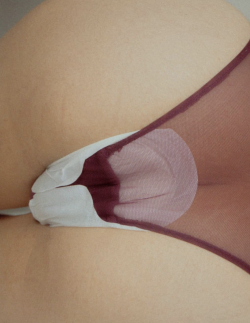Everything you have to know about menstrual symptoms and how to deal with them
Menstruating is something few people look forward to. The stomach cramps, the headache, the cravings, the pimples… Don’t even get us started on the ruined pairs of underwear and spending our hard earned money on tampons and pads. Even though it’s a sign of fertility, I think we can all live without the monthly pain party. Cycle decided to compile a list of tips that could help you ease your menstrual symptoms.
Some have it easier than others, but in general, we can expect more from a period than just some light bleeding. For some people, menstrual symptoms are so bad that it makes productivity impossible and work difficult. In research conducted by RadboudUMC on the impact of menstruation on women, 85% reported suffering from monthly menstrual pain. In addition, 70% of women reported suffering from psychological complaints around menstruation. In fact, menstruating women lose an average of nine days of productivity each year. Not very surprising when you experience more monthly symptoms than just a little blood in your underwear. How many days before your period you experience symptoms varies. Symptoms of PMS (tiredness and mood swings to skin problems) are usually experienced a week before your period begins; during your period these symptoms usually disappear like snow in the sun.
Are you one of “the fortunate ones” who get to experience headaches, tiredness or cramps on a monthly basis? Lucky you! Whilst it might be impossible to completely avoid those menstrual cramps or stabbing pains in the belly, we do have some tips which can ease the pain and make that time of the month a little bit easier.
Stomach cramps
Your period called and she wants to say sorry for the cramps she brings. Menstrual cramps are almost always uncomfortable and for some they can even be debilitating. The feeling of painful menstrual cramps in the lower abdomen (read dysmenorrhoea) usually starts before the cycle begins or in the first few days of the cycle. This cramp is caused by the contracting of the muscles of the uterus. The result? Pain in the lower abdomen and lower back which can feel as a nagging pain in the lower left and right side of the abdomen.
Heatpads
Nagging pain in the lower abdomen can be relieved by placing a hot water bottle or a cherry pit heating pad on the belly. This causes the muscles to relax and that is exactly what you want. Place a heating pad or hot water bottle on the lower back to relieve the back pain. Another option is to take a hot bath with a good smelling oil, like these amazing Fur bath drops. It can help to relax the muscles in the abdomen, back, and legs. Light some candles, play some relaxing music as a finishing touch and voilà: it’s almost like you are in your own spa! Such a bathing session doesn’t sound too bad, does it?
Exercise
We know that exercising is the last thing on your mind when you have those nagging and sharp stabs in the lower belly, but it can relieve some of the pain. Intense exercise is not the smartest idea when you are in pain (bye bye bootcamp!), but some careful stretching, taking a walk, or doing some yoga could help. How? By exercising your body produces endorphins. These are also known as a natural painkiller.
Orgasm galore
It’s getting hot in here… Did you know that an orgasm is a great remedy for menstrual cramps? Just like exercising, having an orgasm produces endorphins and oxytocin which relieve pain and they make you feel good. Do you need some help? Try our Verrrronica with some Jelly. It will, without a doubt, lift you to new heights. Are you done? Clean the vibrator, which got a little bloody, with some Clean Toy Cleanser - the best option to clean your toys during that time of the month. Do you want to try a smaller toy that you don’t have to insert? Our Fireman will be The Toy for you!
Massage
Getting a massage or doing a self-massage is always a good idea, but it’s even better during shark week. A massage can help to relax the pelvic floor muscles, relieve cramps, and ease the stomach cramps in the lower belly. A nice way is to gently massage the lower belly, but of course the lower back is always nice, too. Use some (heating) massage oil or body lotion on your skin and you are good to go.
Headaches
Another lovely addition to getting your period: headaches. Hormones cause a lot of changes during the menstrual cycle and just like many, you can suffer from hormonal headaches during your time of the month. And yes, like most symptoms during menstruation, you can blame your hormones. The days leading up to your period your hormone levels drop. Estrogen and progesterone levels are at their lowest right before menstruation. And the first one, the decrease of estrogen levels, is the reason some experience more headaches.
Some people can even get menstrual migraines when the estrogen levels in their bodies change. After all, during your period, you are simply more sensitive to pain, including those from headaches. This symptom usually starts a day or a couple of days before your period and disappears after a couple of days during your period.
migraines
read moreUse essential oils
Headaches during menstruation can get some relief by using essential oils. For example, scents such as lavender and peppermint are soothing or cleansing. If you plan to use essential oils, keep in mind that you should never apply them directly to the skin and that they must be diluted first. Two exceptions to this are lavender oil and tea tree oil. You can put the oils in an aroma diffuser, or drip a few drops on your pillow.
Drink a lot of water
If you get a headache, make sure that you drink a lot of water. Sometimes a headache is made worse by simple dehydration and a glass of water can offer some relief. Drinking eight glasses of water a day can save you from a lot of headaches in the future.
Sleep and relax
A good night's sleep helps to relieve some of the stress and tension in your body and mind. Try to stick to a regular sleep schedule so you don’t sleep too much or too little during your period. Meditation or other relaxation techniques can relieve the stress of menstrual headaches and help relieve the pain. Try a meditation app such as Headspace or lie quietly for a few minutes and focus on your breathing. Your relaxed muscles and increased oxygen intake will help calm your mind in this way. Try to drink as little caffeine as possible during the day, sleep according to a regular rhythm and use your phone as little as possible before bedtime. This is because the blue light makes it harder for you to fall asleep.
Tiredness
Have you ever felt like you could sleep for a week when you are about to start your period? You are not alone. Tiredness due to menstruation is a very common symptom, because your hormones play an important role in the regulation of sleep patterns and energy levels. Your energy levels will usually return to normal within a few days as hormone levels begin to rise again. In some people, however, fatigue may last longer and it can be more extreme. This may indicate an iron deficiency. This is because there is iron in your blood and you lose blood during your period. Usually, your body is able to get enough iron from food. Are you bleeding heavily? Then it may be wise to visit your GP to see if an additional intake of iron is a wise choice for you.
Take it easy
It may sound so obvious, but it does actually help: take it easy. Slow down when you have symptoms like this. Try to limit your caffeine intake during the day, stick to a sleep schedule and try to limit the use of your phone before bed. And leave that glass of wine for a while, too. No matter how tempting it sounds, it certainly won't help you.
Don’t be too hard on yourself
Life is hard enough now. Your body has to deal with all kinds of things and we often pretend that everything is fine. If menstruating has left you with tired muscles or back pain, a nice oil or cream can help you out. Just spread the oil or cream on your tired lower back or legs and you will experience a soothing effect in no time. Extra tip: keep the cream meant for physical fatigue in the refrigerator for extra cooling in the summer months.
Binge eating
It's that time again. You're on your period and have stocked up on pounds of licorice, cookies, ice cream, chips and Tony's Chocolonely to eat unabashedly. Binge eating it is! We wouldn’t be a good friend to you if we told you that this is healthy for your body. By the way, it's not crazy that your eating habits change during your period. You wouldn't think it (sarcasm mode: on), but having more desire to eat during your period is also related to your hormonal balance. Low estrogen levels can lower serotonin levels (the happiness hormone), making you extremely hungry for carbohydrates.
We get it: filling your shopping cart with unhealthy options (hello, Ben & Jerry's!) is just easier than going for a healthy lentil soup. But remember: if you don't have it, you can't eat it.
No sugar rush
Avoid binge eating when your period is just around the corner. Stock up on some healthy options, such as fatty fish or avocado, and try to replace that bar of chocolate with a tasty smoothie before all hell breaks loose. Make sure you don't let your blood sugar rise so often. You do this by not eating sweet and sugary things and sticking to eating three times a day. The fluctuations in your blood sugar make you feel hangry (hungry and angry), and we don't want that. Because what is the result of feeling hangry? More food. So what can you eat when you're on your period? Eat high-fiber foods and try to avoid sugar, which reduces the craving for sweets. Besides vegetables, omega-3 is important because this substance can relieve menstrual pain. Omega-3 can be obtained from fatty fish or nuts, for example.
Want to read more about this? Check out our article on hormonal binge eating with some great tips for good recipes.
Be kind to yourself.
Side note: be kind to yourself. Endlessly chewing on a carrot is not realistic at all, so it is okay to cheat every once in a while. And no, this is not a license to just give into your cravings - we’re watching you.
Lastly, do you suffer from menstrual symptoms? Do you think something might be wrong? Listen to your body (you are not imagining it) and go visit your GP. He or she can refer you to the gynecologist if necessary.
Want to read more?
Your cycle is made up of four parts, the so-called “seasons”. You can read all about how it works and which symptoms belong to which phase of your cycle here. Want to know all about the menstrual symptoms? Read this overview.
Not sure which product to use? Read our article about pads to menstrual cups; which intimate care product suits your period?
Want to watch our free webinar on Heavy Menstrual Bleeding? You can do so here.



























